But there’s another perspective of propriety. LDS singles can hold bitterness in their hearts towards someone they fault for their singleness. Never married singles can begrudge dating relationships that never worked out or simply never happened. Divorced singles can blame a former spouse. Widowed singles can embitter themselves towards whatever caused their spouse to die. Yet regardless of the cause, embittered singles can have beauty for ashes when they embrace the Savior and forgive. It begins with awareness Perhaps Sister Yee’s address spoke to me because I have my own need to forgive. My stake does absolutely nothing for singles. My leaders have responded to my pleadings by calling a stake rep who does absolutely nothing. They seem tolerant of a status quo in which sorely needed blessings are not received. Naturally, what results inside me is a roller coaster ride, and I’m not talking about my pancreatitis (although I could be)! I know I shouldn’t hold a grudge, and so I want to resist the conclusion that my leaders simply don’t care. At the same time, I struggle to see any evidence that they do care. I’m left resisting a bitterness launching itself at my door, eager to enter, and I’m tiring. In that context, Sister Yee’s recounting of the Old Testament story of Abigail seems apropos.
I like that phrase — “the weight of a warring heart.” It’s so poetic and yet so profound. It happens with belief If awareness is the first step towards forgiveness, the second must surely be belief. You must believe it’s possible for you to forgive before you’ll ever attempt it. If you truly believed it would never happen, you wouldn’t even try. This is where many who need to forgive stop. They somehow link forgiveness with the other person, the object of their bitterness and hurt, rationalizing that since said person will never comply with whatever their judgment demands, forgiveness simply isn’t possible. That link becomes especially strong when that other person offended egregiously. But forgiveness isn’t about the other person; it’s about you. It’s about stopping the canker of bitterness from blinding your vision and consuming your heart. It’s about healing the cancer that would steal your soul. Holding a grudge never punishes the other person; it punishes only you. That’s why I found Sister Yee’s personal testimony about forgiveness so moving. Her experiences encourage belief that forgiveness is possible, even when the hurt cuts very deep.
Her confession that she “still has work to do” makes relating to her experience much easier for me. And her hope for herself give me hope for myself. It continues with choice Yet the part of Sister Yee’s address I appreciate the most appears towards the end, where she reminds us of the importance of timing and adapting that timing to the individual. Not everyone heals at the same rate, and so we should be tolerant as others pursue their path of coming to Christ in their own way. That admonition to avoid judgments of timing is best applied within yourself. Extend kindness to yourself and allow your heart to take the time it needs to open to the Savior and experience the miracle of forgiveness. That kindness you extend to yourself by not insisting on a particular timetable promotes the healing you need. As Sister Yee testifies,
That last part is, I think, the key part of the journey of transformation the Savior promises. Unless you give to others what you have been denied, you’ll never be fully healed. Many LDS singles have been given ashes in their lives, but to receive beauty for your ashes, you must give beauty to others, for you always get what you give. So release the weight of your warring heart, believe forgiveness is possible, be kind with yourself, and give to others what you’ve been denied. When you do, you will find beauty from the ashes of your life. And that will bring you more joy in your journey.
0 Comments
I soon saw why. President Ballard’s references to the pioneers really resonated with me in the midst of my own difficult journey. In a way, I’m something of a pioneer. I’ve had my first visit to the emergency room, my first hospital stay, and my first surgery. The road I’m walking now is unexpectedly new to me. But that new road just heightens my need to take footsteps of faith. My pioneer mission Despite the newness of my current road, I’m not entirely in unfamiliar territory. I covered ground much like this on my mission. Being sick all the time with symptoms that came and went so much I couldn’t tell you what the next day would be like, let alone when exactly it would end. That sounds a lot like the road I’m on right now. President Ballard mentioned his own missionary service in his address, and it caused me to reflect on my own service, particularly how it prepared me for my life. It’s provided me a foundation for each new segment of my life journey. That’s why I really appreciated President Ballard’s initial words. Right out of the gate, he starts with bold testimony:
I need that hope now as I face my current challenges. It’s one thing to say it’ll all be over because I go home at the end of two years. It’s another when you don’t have such a marker in sight. Pioneers and prophets It’s not altogether surprising President Ballard centered his remarks around pioneers. He’s spoken in past Conferences about his pioneer ancestors and the lessons they offered him — and through him to all of us. Such references often get me thinking about my own pioneer ancestors. I don’t know much about them because the principle one never kept a journal. Perhaps my knowledge of my ancestors’ lives will change one day. In the meantime, I can lean on others like President Ballard to fill that gap. I was particularly impressed when he shared,
How many of us have really thought about that? It’s easy to get wrapped up in the difficulties of our own lives, so much so we can easily forget that the story of how we confronted our challenges could help those who come after us confront theirs. Knowing my response can help others gives me strength to make a better choice. President Ballard spoke of other pioneers. In particular, he mentioned President Nelson:
I so very much appreciated that quote from President Nelson, for if I ever needed a miracle, I need one now. What a tender mercy! Our pioneer Savior Of course, President Ballard saved the best example for last — our Lord and Savior, Jesus Christ. That’s altogether fitting since Christ is the ultimate anything good. Plus President Ballard’s remarks are entitled “Follow Jesus Christ with Footsteps of Faith.” It’s not just walking in faith. It’s walking the path of Christ in faith. Moreover, it’s not walking behind Him so much as it is beside Him. That concept I find especially comforting in my current difficulties. Don’t get me wrong. This road has been very rough, and I’m just getting started with it. But even in my most painful moments, the Lord has never abandoned me. He has stood beside me through it all. His walk beside me in my moments of difficulty invites me to walk beside Him in my moments of ease (which will come one day, for eventually this all will pass). President Ballard’s testimony of the Savior especially moved me.
Whatever road in life, may we each seek to follow Jesus Christ with footsteps of faith. He’ll strengthen us to become shining examples for those who follow us. He’ll encourage us through the voice of His Spirit and His living Prophet. And He will stand ready to lift us to higher ground as our trials bring our glean to a brilliant glorious sheen. And that will bring us more joy in our journey.
Elder Christofferson approached belonging from a doctrinal perspective with practical application to belonging. That approach confirmed what we’ve been discussing here for years on Joy in the Journey Radio. But it also enlightened my understanding of what it means to belong. It’s easier to feel belonging when we truly understand the doctrine of belonging. See the commonalities  Elder Christofferson begins by listing the three parts of the doctrine of belonging: “the role of belonging in gathering the Lord's covenant people, the importance of service and sacrifice in belonging, and the centrality of Jesus Christ to belonging.” Let’s talk about how each of these parts relates to LDS singles. As the Lord gathers His covenant people across the world, we’d expect, as Elder Christofferson rightly notes, Church membership to become more diverse. We see that diversity today in every conceivable way, including life situation. This diversity offers great strength and richness but also great challenge as our biological hardwiring influences us to compare ourselves with others in order to assess how “normal” we are. Without context, such comparisons can demoralize and depress us. Elder Christofferson illustrated this effect in the story of Jody King, a married woman confronting infertility. As I listened to the heartrending emotions expressed in Sister King’s experience, I recognized a great parallel. You could change the details of her story from would-be-mother to would-be spouse, and the emotions would stay the same. We need to see less of the details differentiating us and more of our commonality as children of God. Elder Christofferson recognized that need when he taught,
We too should care about what others around us are becoming more than what they are today. Serve one another  In addition, we gain a sense of belonging within the Church as we serve and contribute to the larger Church community. This makes obvious sense and yet the realization of its truth escapes many of us precisely because it is so simple. We feel like we belong to a larger group when we do what those in the group do. Singles don’t do everything marrieds do (or at least they shouldn’t), and that distinction highlights the earlier distinction of identity (“I’m single and you’re married”) that destroys any feeling of belonging. But serving one another is something everyone can do. Being true to as many covenants as one’s made is something everyone can do. When everyone serves everyone else and turns their focus there, we see ourselves more doing what the group does and foster the sense of belonging we crave. Elder Christofferson recognized this truth as he shared,
How often have we singles focused excessively on our own unmet needs? Think back to such a moment in your life and consider whether you felt like you belonged to the larger Church community in that moment. However legitimate your unmet needs, focusing there always leads to feelings of isolation and abandonment, not belonging. Come unto Christ Of course, the highest and most important sense of belonging comes through Christ. We best promote that sense of belonging by nourishing a personal relationship with Him. We must spend time with Him daily. As I think back upon my many years of LDS singles life, I can remember many struggles with finding acceptance within my peer group. What helped me the most in those times was remembering He Who “came unto his own, and his own received him not” (John 1:11). Leveraging my struggle to feel closer to the Lord has helped me feel more belonging to Him, the only sense of belonging that really matters in the end. Elder Christofferson displayed that perspective as he declared,
LDS singles must live the doctrine of belonging in order to thrive and experience maximum joy despite their circumstances. As we identify as members of the covenant, strive to keep those covenants while serving one another, and spend time daily nourishing our relationship with the Lord, we can gain a sense of belonging to Him and His Church. And that will bring us more joy in our journey.
Today will soon be yesterday  Time passes by so quickly. It seems only yesterday I came home from my mission. Yet in reality it’s been not one day but almost 10,000 days — 27 years. That number staggers my imagination. And what changes have occurred in all that time? I’ve grown in ways I never imagined when I looked into the future 27 years ago. Many are quite positive, but many have me living far beneath my dreams. Comparing what I saw for myself then with what I see in myself now reveals vast differences that beg the questions: How did I get here? How did it come to this? Many LDS singles ask themselves similar questions as they take stock of themselves. They live far beneath the dreams they had when they were younger. And with the world becoming ever more chaotic, they wonder how those dreams have any chance of coming true. Much lies outside your own individual power to change, but much more remains within it. As President Nelson reminds us,
That last part — how you spend your time each day — is key. Your best life is the collection of results you desire. Results come only from action. And every action, in order to exist, must occupy space and time. You can’t change the past, and the future’s always a day away. All you have is here and now. And it turns out that’s all you need to begin living your best life. It’s time to start moving Far too many of us hold ourselves back from our best life. We focus on the obstacles instead of the opportunities. We keep looking for and listening to excuses instead of ways to move forward. And without forward motion, we’ll never develop the momentum we need to push through tough times. Some hear these arguments and decide to fool themselves. They leverage lessons from their past to formulate brilliant plans for moving forward. They feel good about themselves after spending inordinate amounts of time planning and preparing. But those good feelings never translate into a new life. Their actions don’t deliver the results of their dreams but rather trick their minds into thinking they’ve done something substantial when in reality they haven’t. President Nelson understood that situation. He taught,
It’s forward momentum that keeps you moving from one success to another. Momentum carries you through life’s rough seasons and makes your dreams come true. And the only way to get momentum is to start moving and then keep moving. Now is the time to start moving. Right now is the time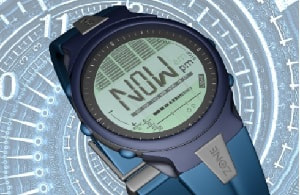 Everything we talk about on Joy in the Journey Radio is meant to help LDS singles live their best life. And all of it will mean absolutely nothing for you unless you wield your power of agency to do what you can with what you have right here right now. All you have is this moment. When you waste it, nothing in your life changes, at least not for the better. So don’t waste it. Begin gathering momentum now. Live within your covenants more completely now. Make more time for the temple now. Take more action towards the results you want in life now. Now is the time because now is the only time you have. Once the present becomes the past, you can’t change it. And when you allow enough present moments to become past regrets you can’t change, your present life falls far below your dreams, leaving you to wonder how you ever got there to begin with. Don’t wait, and don’t doubt yourself. Start taking action towards your best life. Now is the time. When you diligently take advantage of each present moment, they’ll become past successes that taken together will lift you into your best life. And that will bring you more joy in your journey.
As I carefully re-read Elder Ochoa’s address in preparation for the broadcast, I see I had assumptions that led me to a different conclusion than what Elder Ochoa likely intended. When you approach your life with the right assumptions, you can ask “Is the plan working?” and know that it is. Recognize your faulty assumptions  My assumptions began to influence my thinking from the start. When Elder Ochoa mentioned a young returned missionary whose life wasn’t working out the way he expected, I instantly assumed that young man was single. It seemed right to think that. Increasingly LDS singles aren’t marrying at all, and those who do marry do so later. Thus, many LDS singles wonder how the plan of happiness can be working for them when they seem shut out from the blessings of happiness they desire. In that light, Elder Ochoa’s address could’ve been addressing LDS singles when he said,
But Elder Ochoa never identified that discontent young man as single. He may have been single, but he also could have been married. We simply don’t know because Elder Ochoa never said. That’s important, because my assumption the man was single led me to an erroneous conclusion about Elder Ochoa’s address. Distinguish between two plans  Here’s the real problem: There’s two plans we’re talking about here. The first is God’s plan for His children that spans eternity. The second is our plan for our lives here in mortality. With both plans intended to result in our happiness, it’s easy to get them confused. Many LDS singles do in fact confuse them because of faulty assumptions behind their thinking. The largest of these is the idea that righteous blessings result from righteous behavior. The faulty connection assumed here provides particular challenge when the blessing sought is marriage, a blessing not predicated entirely or even largely on righteous behavior. Notwithstanding, those singles who chose to assume that faulty connection in their thinking are more likely to turn tone deaf when they hear messages like this:
Many LDS singles who falsely assume righteousness leads to marriage hear that and respond, “What are you talking about? I’m trying to honor my covenants, so of course I’m following Jesus. But I still don’t have my desired blessings, so how can you say the plan works?” Again, we’re talking about two different plans here. Just because our plan for mortality isn’t working doesn’t mean God’s plan for eternity isn’t also. Focus on the right plan  Elder Ochoa doesn’t address that distinction. His solution for people who feel the plan of happiness isn’t working for them is to act in faith, turn to Jesus, and humble themselves. That’s a great approach when you’re talking about God’s plan that spans eternity. But it offers little to those largely concerned with receiving a blessing in this life. That’s why my faulty assumption at the start of his remarks led me to conclude falsely. Every time Elder Ochoa speaks of “the plan of happiness,” he’s talking about God’s plan that spans eternity. But my faulty assumption at the start got me focused on receiving a blessing in mortality. And with that focus, I couldn’t connect with Elder Ochoa’s real message. Is the plan working? That depends on which plan you’re talking about. If you’re talking about the plan you make for yourself for happiness in mortality, then it may or may not be working, depending on your assumptions. But if you’re talking about the plan God made for His children to be happy in eternity, then yes, that plan is working great so long as we make and keep every sacred covenant we can. When you question your assumptions and get clear about distinguishing between God’s plan for life in eternity and your plan for life in this world, you can better feel the power of perspective helping you to let go of everything holding you back from enjoying each moment irrespective of your circumstances. And that will bring you more joy in your journey.
Check your thinking Elder Christofferson starts with Job, recounting how Job’s sufferings tried him so deeply he began to condemn God for “wronging” him. God then reminded Job of His omnipotence and omniscience. Job, realizing he couldn’t hold a candle to his Maker, humbly let God prevail. In the end, “the Lord blessed the latter end of Job more than his beginning” (Job 42:12). Often the suffering of LDS singles leads them down the road of Job. They can feel wronged when they do their best to keep the standards of righteousness and yet desired righteous blessings don’t materialize. Worse yet, those blessings don’t show any sign of ever materializing. But the problem here is in how we think. We need to correct the faulty assumption that keeping the standards means we’ll have our desired blessings and certainly not in our way and on our schedule. Elder Christofferson taught,
The idea that “I’m not happy so God must be doing something wrong” assumes God’s main job is to make our lives blissfully care free. But God’s work is “to bring to pass the immortality and eternal life of man” (Moses 1:39). As we discussed last week, growth is often uncomfortable. Sometimes that discomfort comes from living without desired righteous blessings. Correct your assumptions  How then do the blessings we want come? Many LDS singles simply shrug their shoulders as they give the most common response: “I don’t know.” But other responses abound. In recent years, as the proportion of singles in the Church has grown, leaders have increasingly suggested the receipt of righteous blessings is largely out of our hands. They say God has an individualized and personalized plan for each of His children, and righteous blessings are dispensed as God executes that plan. Elder Christofferson appears to be in that camp when he taught,
I agree blessings which don’t conform to God’s will won’t materialize. However, I don’t think that means the lack of a particular blessing means it’s God’s will that blessing isn’t there. D&C 130:21 teaches every blessing is predicted upon obedience to the law connected with that blessing. If you don’t keep the particular law, you don’t get the particular blessing. Thus, any lack of companionship and marriage lies not in failing to keep the standards good enough but rather in the assumption that keeping the standards should yield the blessing of companionship and marriage. Those desired righteous blessings are predicated on a different law. Partner with Him You may well ask, “What is that different law?” The blessings of companionship and marriage come as singles progress through the stages of the dating journey. When singles follow the fundamental principles of that journey, they make progress in that journey. When they don’t follow fundamentals, they don’t progress. Period. Following fundamentals means becoming more agreeable, and that means changing you. Partnering with the Lord is the best way to know what changes you need to make now to become more agreeable. Partnering with the Lord also provides guidance, courage, and strength in making those changes. So a failure to see desired blessings in our lives should motivate us to increase our relationship with God, not diminish it. Elder Christofferson taught,
God hasn’t abandoned us simply because desired blessings haven’t come how or when we want. But we abandon Him when we lose faith in Him and allow that loss of faith to tolerate a lack of devotion to our covenants and our place in His work. That work is not about making life easy and comfortable but about helping others progress along a path that stretches into eternity. When life doesn’t go as planned, we need to increase our relationship with God. Hard times are a call to deepen discipleship. By heeding that call, we’ll find the guidance we need to know the next step as well as the faith and courage to take it. And that will bring us more joy in our journey.
What impressed me about Sister Porter’s approach was her use of singles to exemplify her ultimate message of the valuable contribution LDS singles can make in their world. It’s a message we’ve been promulgating here at Joy in the Journey Radio by encouraging LDS singles to adopt a personal ministry. We all can powerfully influence those around us for good, and we’ll make that difference in others’ lives when we heed the lessons at the well. You determine your future I love the introduction Sister Porter gives to her remarks. She was happily married and serving with her husband in the Church in Eastern Europe. Then her husband’s health took a turn for the worse, and in short order she found herself single. I don’t know if she actually thought of herself as single. She didn’t mention that in her address, and I know many who’ve lost a spouse to death still consider themselves married by virtue of their temple covenants. If your spouse is not in this life living with you, you may be married for the purposes of eternity, but for the purposes of this life, you’re single. You also have a wonderful opportunity to effect much good. It starts when you realize your past and present circumstances don’t determine your future. In referencing her unexpected return to singlehood, Sister Porter shared,
The woman at Jacob’s well exemplified this attitude, which applies just as much to men as it does to women. She did not allow her past or present condition to determine her future. She chose to testify of the Savior, and her choice blessed many others. You have the power  Likewise, LDS singles can chose to embrace a new future by making the higher choice. Too often LDS singles play the victim, thinking that their past is prologue and nothing they do will make any difference. But that’s true for you only if you decide it is. You’ve been blessed with agency, the second most underappreciated gift of God. And it’s the second most underappreciated gift of God because so many simply don’t realize the power that’s in them because of this gift. Sister Porter recognized it. After quoting D&C 58:26-28 and emphasizing that last phrase in the verses — “for the power is in them” — she declared,
You’re not in this alone! No matter your past or present circumstances, you can choose to let your light shine, share your goodness with others, and put a dent in the universe. With the creator of heaven and earth at your side, why choose anything else? You make the difference This is how great ends come out of small beginnings. The Lord is the Master Gardener, the one best suited to help you grow into the fullness of your potential. He can transform the seemingly meager contributions you make into extraordinary differences. Sister Porter shared three examples from the Master’s teachings that demonstrate this effect, one involving salt, one involving leaven, and one involving light. Each of these items in even seemingly small amounts makes a tremendous difference in their separate contexts. Likewise, though your efforts may seem small and inconsequential, you can make a tremendous difference in your world. Your salt can flavor the lives of others, your leaven can lighten their loads, and your light can disperse the darkness surrounding them. As Sister Porter taught,
Heed the lessons at the well and make the higher choice. When you do, the Savior can turn your seemingly small service into the difference others need in their lives. In easing the burdens of others, you’ll find your own burdens eased. In helping others grow, you’ll find your own growth. And that will bring you more joy in your journey.
To assist all in gaining and maintaining positive spiritual momentum, the Prophet makes five recommendations:
Improve daily Far be it from me to discount the covenant path. It’s so essential the Prophet lists it first among his recommendations. That said, I’d like to begin with his second point: Discover the joy of daily repentance. When I was a young man, I thought of repentance as something for the big wrongs we do. Few if any of us do anything big every day, so in this view, repentance becomes an occasional activity. Yet President Nelson’s sees more broadly. Not only should we embrace repentance daily, we can also find joy when we do. Simply put, daily repentance is just daily improvement, making small changes every day that move us forward. President Nelson taught,
If that’s true, then daily repentance is the key to daily progress. These ideas apply directly to LDS singles who want more from their lives. Far too many of us are waiting around for our happily ever after to be thrust upon us. We need to use the gift of agency God has granted us and choose to do the little things day by day that will over time aggregate into the happily ever after we seek. Believe completely And since we’re talking here about singles, it shouldn’t surprise anyone I’ll focus on the Prophet’s fourth suggestion: Seek and expect miracles. The battering many singles receive from ineffective approaches to dating leave many thinking the only way their happily ever after will come to them is by a miracle. That thinking has led also to this conclusion: The miracle they need just won’t happen. They don’t see any way anyone they like could like them. They don’t see how anyone would accept them with all their imperfections and disadvantages. But President Nelson sees very differently. He declared,
In the end, it all comes down to what you really believe. If you don’t believe, you won’t receive. Faith must precede the miracle. And as President Nelson taught, it must be the kind of faith that doubts nothing. Remember patience  We’ll of course discuss these and more points from President Nelson’s address in the broadcast today. In the end, we always get what we give. Those who consistently give the small contributions to their success day in and day out will eventually get the success they seek. In all of our efforts, we must remember patience. It takes time to build momentum. As we discussed earlier, just doing 1% more each day will result in a 38% improvement after one year. The first three months of that year, you go from your baseline (where you are now) to 2X. But in the last three months, you go from 15X to 38X. Why the vast difference in improvement? Because you have momentum by the time you reach the last three months, but when you just start out, you don’t. And you can best hold to momentum when you partner with the Lord. He can show you the 1% improvement you need to make every day. He can support you in making it every day. He can strengthen you with patience as you build your needed momentum. So experience the power of spiritual momentum. Make the small changes every day you need to make to lay your daily brick, and in time you’ll have a wonderful edifice housing your dreams and the best life that awaits you there. And that will bring you more joy in your journey.
Put the Lord first  Understandably, the weight of life presses on us all. For many LDS singles who’ve lived years without the righteous blessings they desire, that weight can be heavy indeed. A pessimistic outlook on the future that often attends that weight doesn’t help. But there is always hope because there is always Christ. He can help us go forward when we feel there is no way forward because He is the Way. When we give our heartfelt all to Him, He gives us access to His power. And with His power, we can do all things. That includes maximizing our joy in LDS singles life. We can find balance amongst all the tensions of life when we put the Savior and our discipleship to Him first and give our all to Him and His work. As Elder Uchtdorf explained,
This is how LDS singles can move their lives forward. Find a new approach This doesn’t mean your solution to the challenges of LDS singles life is more church. The solution is more you. When you give more of yourself to what you do, you create the space in which you can have more joy in your life. It’s that giving more of yourself that actually creates that space for more joy. That’s why time and time again I’ve defined happiness as giving your all to all the right things for you. That’s why for years I’ve encouraged LDS singles to embrace a personal ministry. Like the widow’s mite which Elder Uchtdorf referenced to begin his remarks, your contribution to making the world a better place is worthwhile when it represents your all because it’s only in giving your all that you become a better you. I can understand why so many LDS singles want to give up on their lives. Dating often results in frustration and other negative emotions. Then there’s loneliness. And those singles who are also parents have double duty in raising their children. I get it. But I also get that frustration is a sign you’re going about something the wrong way. So when you feel life isn’t working right, it’s really you that isn’t working right. You need a new approach! Elder Uchtdorf explained how putting the Lord first helps us each find the new approach we need.
Just keep moving forward When you partner with the Lord by putting Him and His work first and then taking counsel from Him, He Who is the Way will show you the way. This principle works in every aspect of life, not just discipleship. When you give more of you to all you do, you can get more out of what you do. So if you aren’t getting what you want out of dating, give more of you to it. Start by learning the fundamentals. If you aren’t getting more of what you want from your occupation, give more of you to it. And so it goes for every aspect of life. You can find the balance and lift you need when you give your all and keep moving forward. So don’t stop. Don’t stagnate. Don’t wallow in the mire of despair. Don’t wrap yourself in pity. Focus on where you want to go and keep moving forward. As Elder Uchtdorf taught,
Give your heartfelt all to all you do. You’ll create the space for more joy in your life. You’ll see life turning around for you. And you’ll find more balance and lift in your life as you come closer to the Lord. And that will bring you more joy in your journey.
And with the world becoming more and more chaotic, life will become more challenging for everyone. Singles will feel those challenges more poignantly. It’s one thing to have a companion to share your burdens and support you. It’s quite another when you don’t. To all my single LDS friends, here’s all the more reason why you need to shore up your spiritual foundation by including the temple more in your life. Strengthen your spiritual foundation President Nelson began his remarks by sharing some progress made in strengthening the foundation of the Salt Lake Temple. I love how he draws a ready metaphor for establishing a foundation for our own spiritual lives. To that I would add the need for each of us to establish a solid foundation in every part of our lives: the emotional/social, the mental/intellectual, and the physical. But clearly the spiritual foundation is the most important. The spiritual aspect of life contains the beliefs, values, and ethics that drive behavior in every other life aspect. We need to ensure the spiritual area of life is firmly founded. President Nelson understood as much when, speaking of the Salt Lake Temple, he shared
President Nelson then shared the perfect place to build that solid spiritual foundation we all need — inside the temple. In reality, it’s living inside temple covenants that lays the actual bricks of our spiritual foundation. But all of that comes together in the temple. President Nelson taught
Look to the temple All the blessings LDS singles look to receive are connected with the temple. Indeed, many of these blessings are the same blessings Abraham, Isaac, and Jacob sought and obtained — blessings available to all who make and keep the sacred covenants available only in the House of the Lord. Those blessings came to those early fathers not all at once but incrementally. Likewise, the blessings LDS singles seek to obtain in their lives will not come all at once but “here a little, and there a little” (Isaiah 28:10). President Nelson extended that idea to the great blessing of the Restoration:
If something as important to our Heavenly Father’s plan as the Restoration is still ongoing, His plan for each of us is surely ongoing as well. That thought prompts patience in LDS singles who yearn to have desired blessings now. Embrace faith over fear 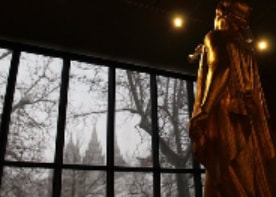 Including the temple at the center of our spiritual foundation can provide the faith needed to choose not only patience but also perseverance. Within the temple we learn of Christ and His Atonement, our Heavenly Father’s plan, and the connections He intends to forge across generations of the human family. The temple also helps us navigate the road of life to as yet unrealized blessings. As chaos in the world grows, we can have the peace that surpasses all understanding, a quiet confidence God will support us when we feel all is lost. The temple and living inside the covenants made there can fill us with that faith. That faith can help us resist fear. President Nelson counseled,
How many LDS singles live in fear the blessings they desire will not come to them? The temple and temple covenants provide the solid spiritual foundation from which we can each take needed action in the other aspects of our lives. We can trust Christ and His power to change us so we can more easily receive the blessings we seek. So include the temple more in your spiritual foundation. The unprecedented times President Nelson foresees will call for unprecedented measures in the attention we give to our foundation and the renewal we provide daily to it. In so doing, we can live with greater confidence and optimism as our fears become memories of a distant past. And that will bring us more joy in our journey.
|
Author
Howdy! I'm Lance, host of Joy in the Journey Radio. I've been blogging about LDS singles life since 2012, and since 2018 I've been producing a weekly Internet radio show and podcast to help LDS singles have more joy in their journey and bring all Latter-day Saints together. Let's engage a conversation that will increase the faith of LDS singles and bring singles and marrieds together in a true unity of the faith.
Comment
Joy in the Journey Radio encourages the free discussion of ideas but reserves the right to remove and/or block comments which do not conform to LDS standards.
Donate
Joy in the Journey Radio offers many free resources to help LDS singles everywhere, but it certainly isn't free! Help Joy in the Journey Radio in its mission to improve the lives of LDS singles by donating today.
Posts by Month
December 2022
Categories
All
|
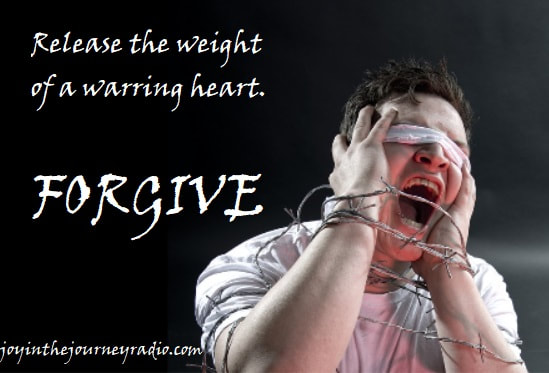
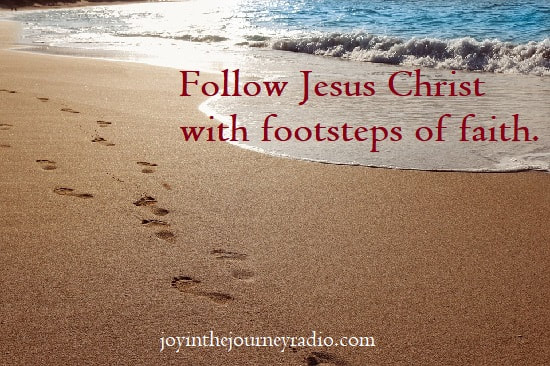
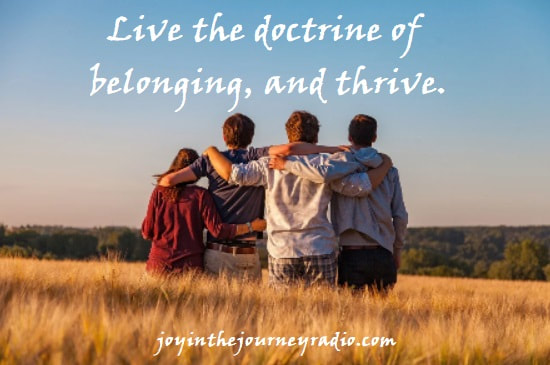
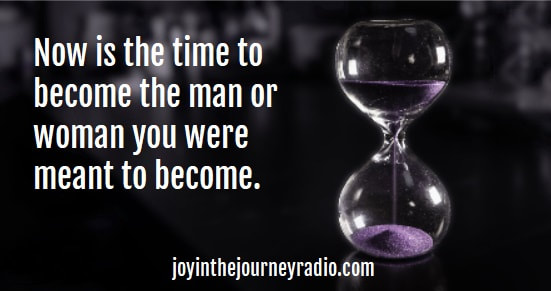
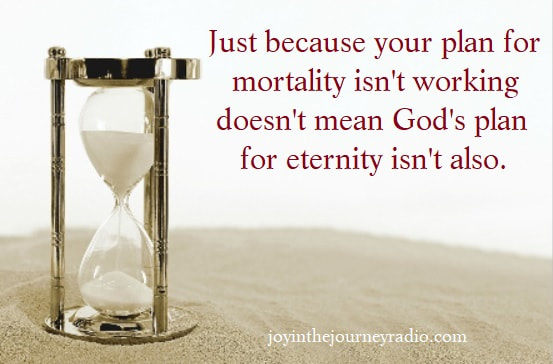

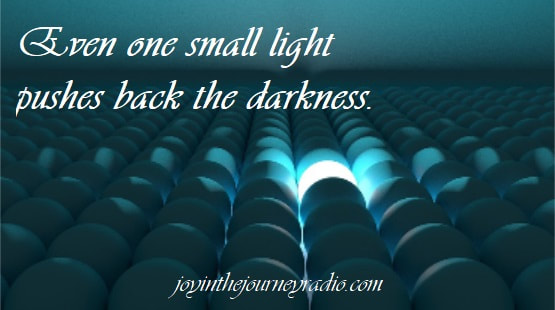
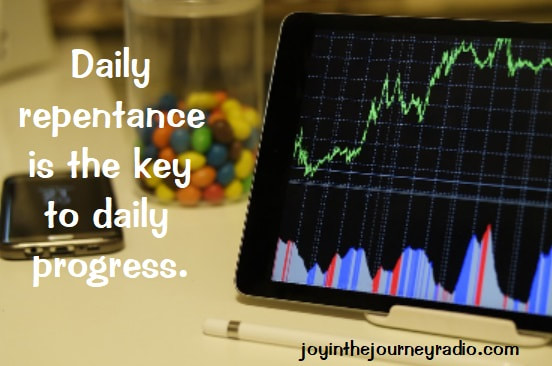

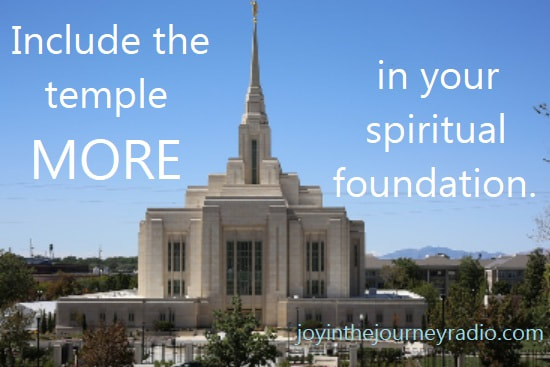
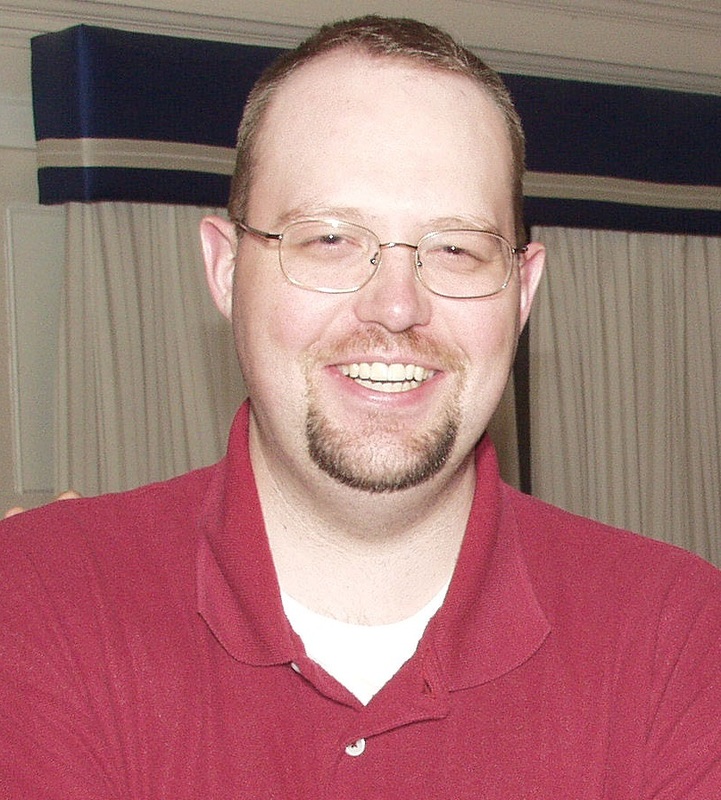
 RSS Feed
RSS Feed